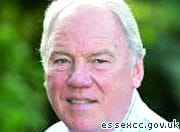Christians are “fair game” for insults at the BBC whilst Muslims must not be offended, one of the broadcaster’s former news anchors has warned.
Peter Sissons, whose memoirs are being serialised in the Daily Mail, slammed the BBC for its bias.
Mr Sissons said: “Islam must not be offended at any price, although Christians are fair game because they do nothing about it if they are offended.”
Anti-Christian
His comments are unlikely to surprise many Christians who have become increasingly concerned about a perceived anti-Christian bias at the public broadcaster.
The veteran presenter, who fronted news and current affairs programmes at the BBC, also said that staff damage their careers if they don’t follow the BBC’s mindset.
He said: “In my view, ‘bias’ is too blunt a word to describe the subtleties of the pervading culture. The better word is a ‘mindset’.”
Damage
He added that “the one thing guaranteed to damage your career prospects at the BBC is letting it be known that you are at odds with the prevailing and deep-rooted BBC attitude towards Life, the Universe and Everything.”
In 2010 Radio 2 host Simon Mayo warned that religion was “increasingly driven to the margin” on the BBC.
And in 2009 Jeremy Vine, another of the Corporation’s radio presenters, said he believed it had become “almost socially unacceptable to say you believe in God.”
“Rare species”
Also in 2009, the Bishop of Manchester accused the Corporation of treating people of faith like an “increasingly rare species”.
And former Radio 2 presenter Don Maclean claimed that the BBC is keen on programmes which attack churches, and that there was a wider secularist campaign “to get rid of Christianity”.
In 2008 Mark Thompson, the Director General of the BBC, said that Islam should be treated more sensitively than Christianity because Muslims are less integrated and more of a minority group.
Liberal
In 2006 Andrew Marr, the BBC’s former chief political correspondent, said: “The BBC is not impartial or neutral. It’s a publicly-funded, urban organisation with an abnormally large number of young people, ethnic minorities and gay people.
“It has a liberal bias not so much a party-political bias. It is better expressed as a cultural liberal bias.”

